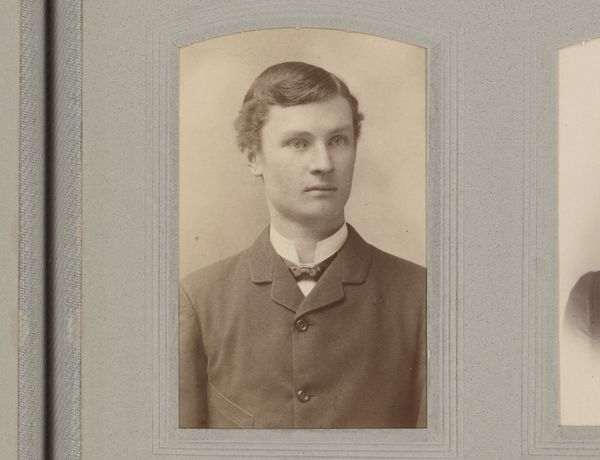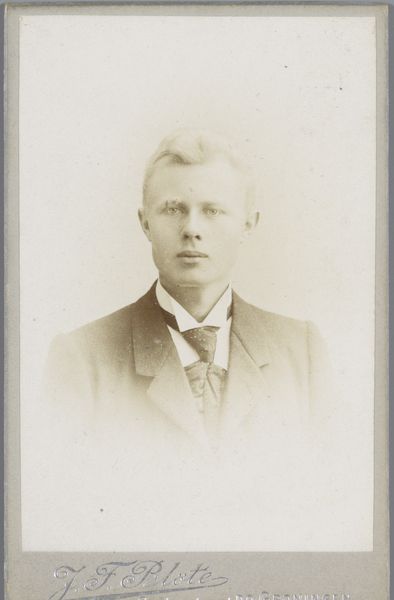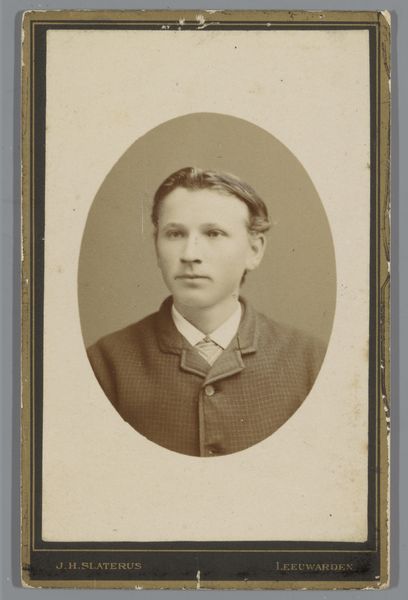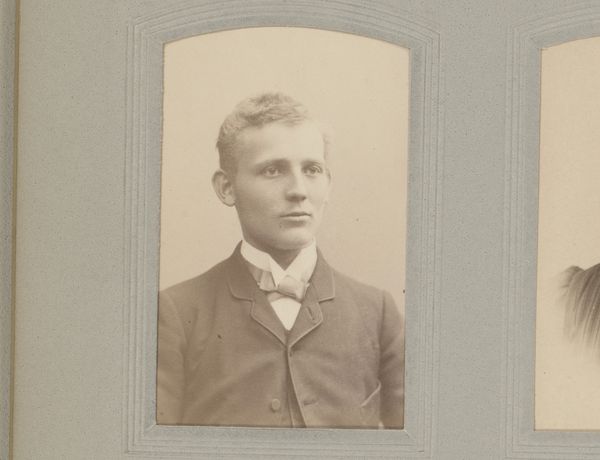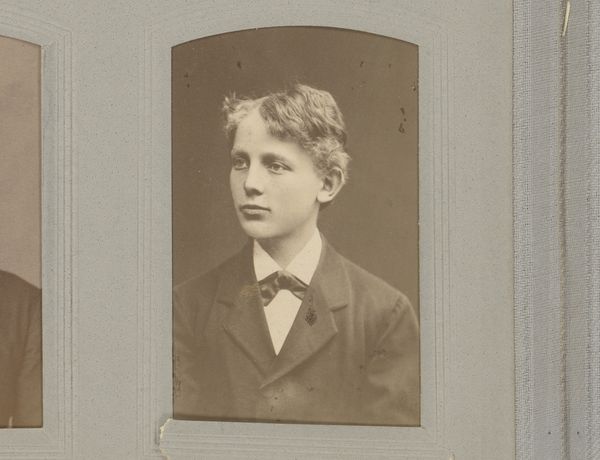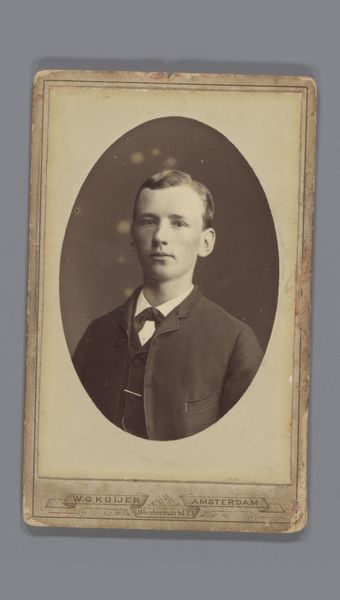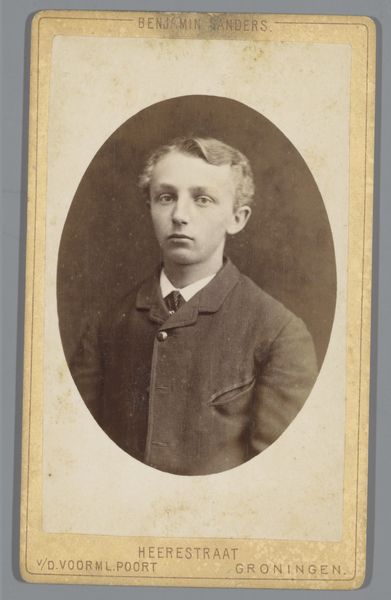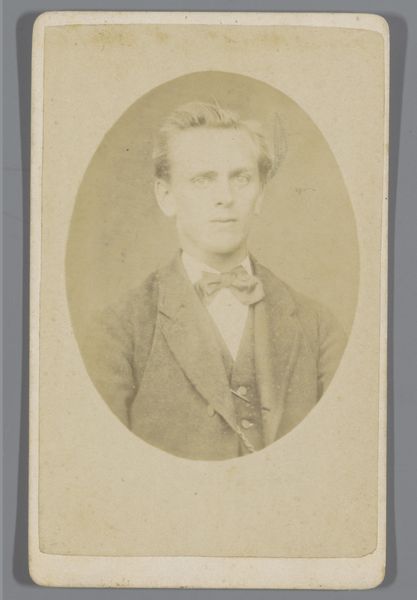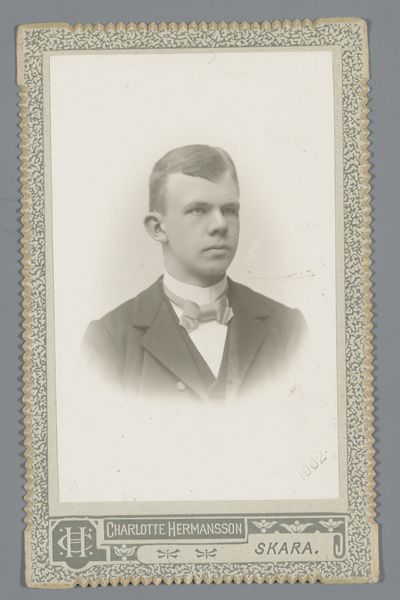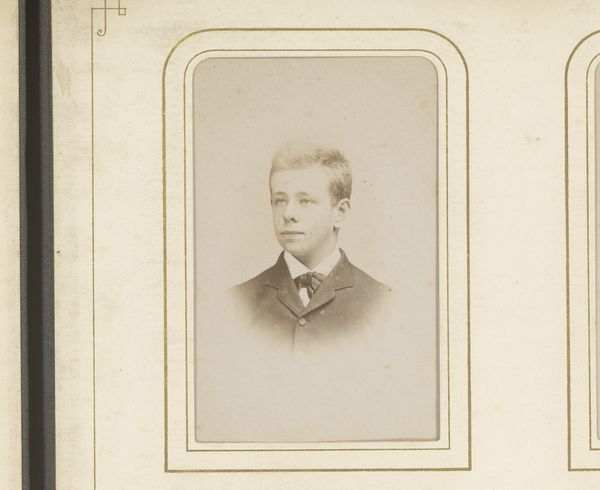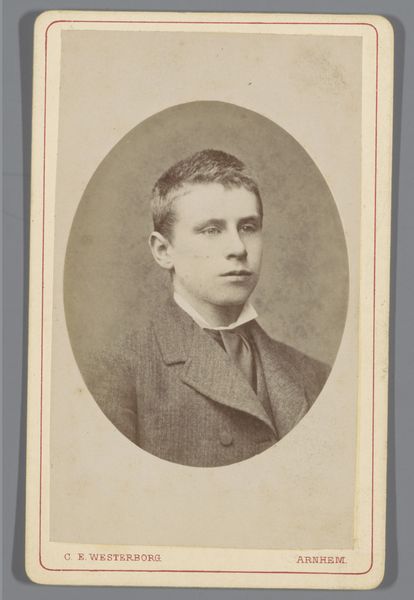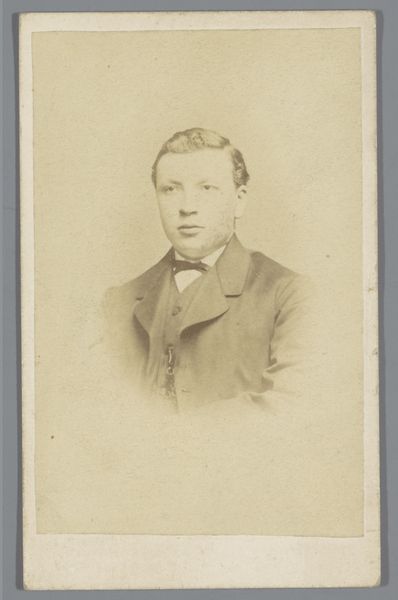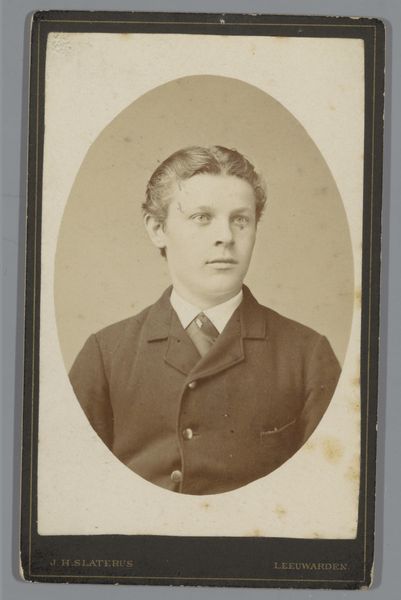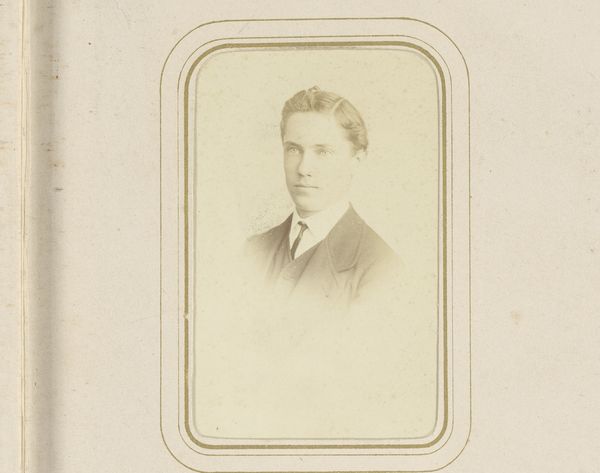
photography
#
portrait
#
aged paper
#
toned paper
#
photo restoration
#
photo element
#
photography
#
portrait reference
#
framed image
#
photographic element
#
tonal art
#
neutral shade
#
fine art portrait
#
realism
Dimensions: height 83 mm, width 51 mm
Copyright: Rijks Museum: Open Domain
Editor: This is "Portret van een jonge man," or "Portrait of a Young Man," a photograph, dating from around 1860 to 1900, by Lönberg & Högberg. I find the sepia tone and the young man's serious expression so captivating. What do you see in this piece? Curator: This photograph offers a window into the emerging culture of portraiture in the late 19th century. Consider the context: photography became increasingly accessible, yet portraiture retained a certain formality and significance, particularly for the burgeoning middle class. Notice how the subject is presented, posed stiffly. What does that communicate to you about the sitter's and the photographer’s aspirations? Editor: I hadn't thought about that! It almost seems like he's trying to project a certain image, one of respectability perhaps? Was photography seen as a democratic art form, accessible to all, or did it perpetuate existing social hierarchies? Curator: That's the crux of it. While photography democratized image-making to a degree, studios like Lönberg & Högberg still catered to specific clientele. This portrait isn't merely a likeness; it's a constructed identity, mediated by the photographer and shaped by societal expectations. Think about how photographic studios operated – as businesses, but also as cultural producers influencing perceptions of self. Editor: That makes me wonder about all the lost stories behind these portraits, individuals frozen in time according to social conventions of the era. Curator: Exactly! And examining those conventions reveals the power dynamics inherent in image creation and consumption, even then. Editor: This photograph reveals a great deal about 19th-century society just by exploring its emergence and historical perception of photographic portraiture. Curator: Absolutely, seeing art through the lens of its historical moment transforms our understanding.
Comments
No comments
Be the first to comment and join the conversation on the ultimate creative platform.
